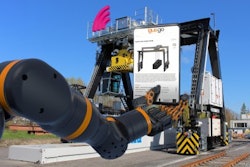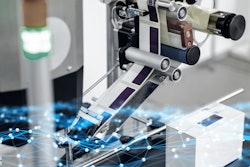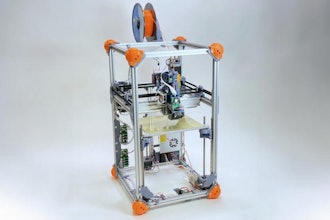Digital commerce is now a necessity for the competitive growth and success of manufacturers of all sizes. Channel shift, new customer expansion, and increased digital expectations have resulted in an evolved B2B buyer. As the landscape has shifted, so have the solutions that power commerce experiences. Manufacturers are moving toward faster, more cost effective and flexible solutions for their commerce platforms.
Where back-office, process-focused ERP systems have traditionally powered B2B commerce experiences, forward-thinking brands are turning to customer-centric, CRM-based systems to meet the demands of the modern manufacturing buyer.
To further exemplify this need, CloudCraze surveyed more than 300 marketing and IT professionals in the 2016 State of Digital Commerce Report. The study identified the pain points and challenges that are pushing B2B companies toward agile, CRM-based commerce platforms.
Breaking the Mold
On premise, ERP-based commerce platforms, such as SAP Hybris, IBM WebSphere and Oracle ATG, notoriously present challenges with scale, flexibility and customer visibility. The CloudCraze survey identifies some of the most challenging pain points manufacturers and other B2B companies experience due to these legacy platforms, which include quickly adapting to the customer and company’s evolving needs (49 percent), scaling for growth and market changes (45 percent), and gaining a holistic view of the customer (40 percent).
With customer acquisition, customer retention and centralized customer data cited as the largest challenges to overcome in the next year, manufacturers need to break from the traditional mold and invest in flexible, agile, customer-centric commerce platforms.
Addressing Pain Points
With nearly half of B2B professionals indicating CRM systems are more innovative than ERP systems and 43 percent finding CRM systems to have a higher level of usability, digital commerce platforms built on top of companies’ existing CRM systems are quickly becoming a major contender in the competitive market.
The customer-centric approach inherent in a CRM-based commerce solution can alleviate a number of pain points identified in the CloudCraze study.
1. Quickly Adapt to the Customer and Company’s Evolving Needs
One of the biggest tensions for B2B companies when it comes to their digital commerce platform is balancing time and money spent on digital commerce implementations, while also delivering on customer expectations.
Seventy percent of brands reported spending more than $1 million on their current commerce site, and 44 percent reported it took longer than a year to implement. Yet, only half of these brands reported that their current commerce system helps them be as profitable as possible, creating a large gap between cost and return on digital commerce technology investments.
CRM-based solutions solve many of these problems through an agile, iterative platform. They equip manufacturers to break into new channels faster, reach new customers and quickly grow revenue.
2. Scale for Growth and Market Changes
ERP-based commerce platforms make it difficult to quickly evolve to meet new customer or market demands. If manufacturers fail to adapt quickly, they lose out to more agile competitors. This is where ERP systems fall short.
Digital commerce typically leads to increased online sales the longer it’s used. However, this isn’t the case with ERP on-premise systems, likely due to this lack of flexibility. On-premise systems are also complex and often require regular IT support to make changes or updates.
In contrast, CRM-based systems tend to be much more user friendly. Marketing or sales professionals can easily provide personalized customer service and make updates with little to no technical training. Given their ability for quick implementation and flexibility, SaaS-based, CRM commerce solutions allow manufacturers to change and scale quickly in response to real time customer actions. Marketers and IT pros value this ability, with 86 percent reporting real time analytics as an important capability when selecting a digital commerce technology.
3. Gain Supply Chain Transparency
Many manufacturers find that their legacy systems cause inefficiencies that prevent a customer-first approach to digital commerce. In fact, 75 percent say their supply chains are only somewhat transparent. This is paradoxical given that nine in 10 manufacturers also believe that increasing the level of engagement with customers would at least somewhat benefit their company.
CRM-based commerce systems make it easy for manufacturers to provide an improved, personalized customer experience, while cross-selling, up-selling and providing relevant product recommendations.
Outlook for the Future
Speed to market is critical and innovation is a necessity as digital commerce continues to gain traction and becomes the main point of contact for consumers and business buyers. Utilizing dated systems is no longer a viable option to meet the demands of the modern customer. Their rigidity and speed to market are hindering the performance of companies to evolve along with consumers’ demands.
For manufacturers to meet these challenges, their digital commerce offerings are going to need to be agile and robust, with the ability to rapidly change along with customer preferences. CRM-based platforms are the solution.






















